- California Assembly OKs highest minimum wage in nation
- S. Korea unveils first graphic cigarette warnings
- US joins with South Korea, Japan in bid to deter North Korea
- LPGA golfer Chun In-gee finally back in action
- S. Korea won’t be top seed in final World Cup qualification round
- US men’s soccer misses 2nd straight Olympics
- US back on track in qualifying with 4-0 win over Guatemala
- High-intensity workout injuries spawn cottage industry
- CDC expands range of Zika mosquitoes into parts of Northeast
- Who knew? ‘The Walking Dead’ is helping families connect
Every day we’re shoveling: New storm, new misery in the East
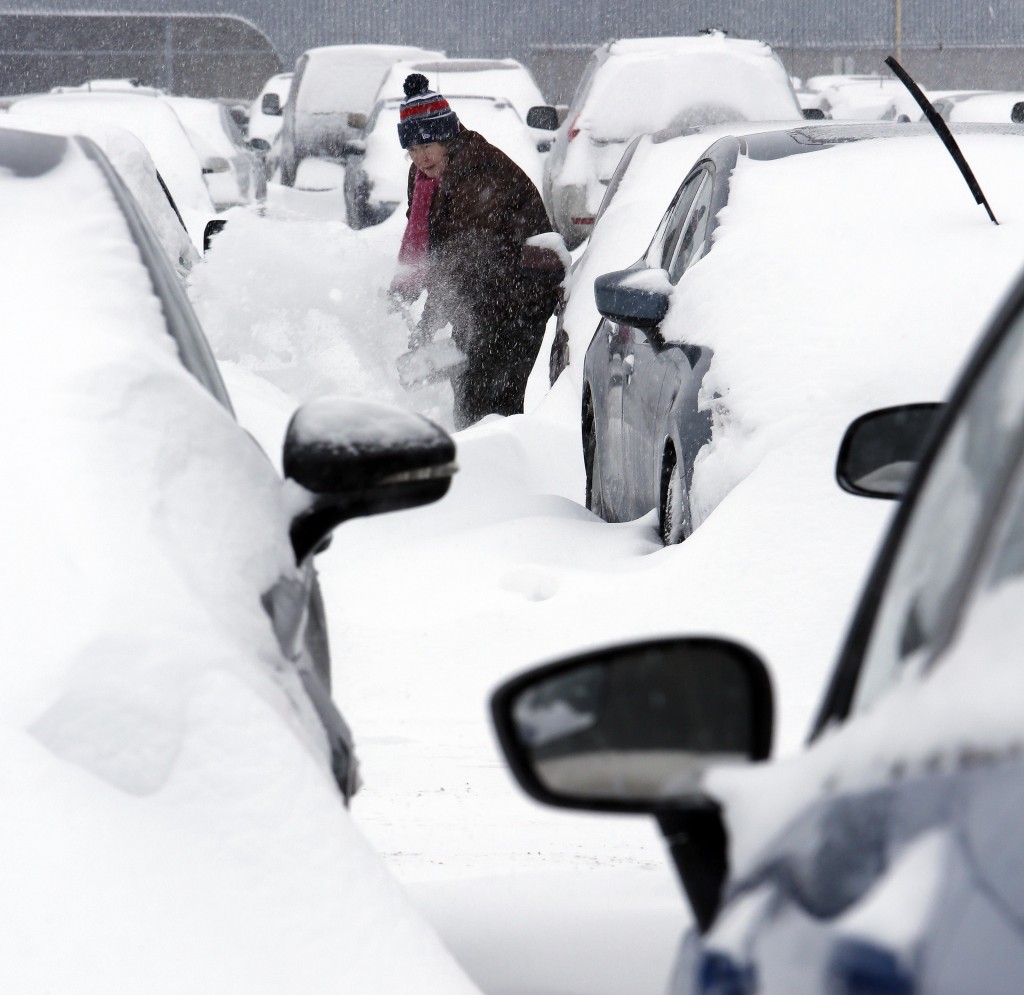
Mary Mulloy, of Strafford, Vt., works to dig her car out of the long term parking lot at the airport, Monday, Feb. 9, 2015, in Manchester, N.H. Mulloy was returning from Salt Lake City, where temperatures were in the 70s. (AP Photo/Jim Cole)
BOSTON (AP) — The third major winter storm in less than two weeks inflicted fresh snow — and misery — across New England and portions of New York state on Monday. Boston, facing up to 2 more feet, grappled with a conundrum: Where to put it all?
Doug Buckley, a truck driver delivering food to restaurants in Boston, captured the city’s winter weariness: “I want to take a plane to Florida.”
Here’s how the latest snowstorm is ravaging the region again:
___
BESIEGED UNTIL EARLY TUESDAY
The National Weather Service issued winter storm warnings for central New York, the western Catskills and much of New England through early Tuesday.
Some areas of Massachusetts had about a foot of snow before dawn, and the storm was expected to last all day Monday. The weather service reported an unofficial measurement of more than 21 inches in Norwell, while other communities south of Boston including Weymouth, Quincy, Milton and Rockland got 18 inches or more. Fitchburg, Leominster and Ashby in north-central Massachusetts all had about 15 inches. Logan Airport in Boston had a foot, and the city was forecast to get as much as 2 feet.
“You can’t change it. The snow is there,” said Helen Ferullo, a Weymouth social worker resigned to the onslaught. “You can’t do anything about it.”
In New York, the snow stretched from Buffalo to the Hudson Valley, one day after 6 inches of snow fell on parts of the region. Much of Connecticut braced for 6 to 12 inches.
___
‘PRETTY MUCH UNPRECEDENTED’
In Massachusetts alone since last month’s blizzard struck, state workers have removed enough snow to fill Gillette Stadium 90 times over, Gov. Charlie Baker told reporters Monday morning, calling the situation “pretty much unprecedented.”
Boston set a record for the most snow recorded in a 30-day period, with 61.6 inches by 7 a.m. Monday, breaking the record of 58.8 inches set in February 1978.
Baker ordered nonemergency state employees to stay at home.
___
ROOF COLLAPSES
Massachusetts emergency management officials confirmed that snow-laden roofs collapsed Monday in Quincy, Rockport and Bridgewater. No injuries were reported.
Quincy police said a former set of “The Finest Hours” — a Disney film about a Coast Guard rescue of crewmen aboard an oil tanker wrecked off Cape Cod during a 1952 blizzard — suffered a partial collapse at an old shipyard in Quincy. The movie starring Chris Pine and Casey Affleck is scheduled to open next year.
___
MORE TRANSIT HEADACHES
Amtrak canceled portions of its passenger train service in upstate New York because of the storm. It said some trains linking New York City to Albany-Rensselaer and Niagara Falls, New York, were canceled. New York’s Metro-North Harlem line had delays of up to 45 minutes.
Boston’s Logan International Airport was allowing only a limited amount of flights to arrive and depart Monday. Travelers were urged to check with their airlines. In Maine, Portland International Jetport and Bangor International Airport reported numerous cancellations.
Boston’s transit system, the nation’s oldest, has been particularly hard hit this winter. The buildup of snow and ice on trolley tracks combined with aging equipment has stalled trains, delaying and angering commuters. On Monday, nearly 50 commuters were rescued from a Massachusetts Bay Transportation Authority train that became disabled between stations in Quincy, just south of Boston. Parts of Boston’s Red and Orange subway lines shut down and passengers were being loaded onto buses.
___
DEEP FREEZE COMPLICATIONS
Adding insult to injury, the Massachusetts Emergency Management Agency warned that potentially record-low temperatures and wind chills are expected to move into the region later in the week.
Baker said state offices would be closed for nonemergency personnel Monday, and he encouraged businesses to allow employees to work from home or stay home so they wouldn’t be on the roads.
The steady run of winter blasts has already sucked up over 70 percent of New Hampshire’s Department of Transportation winter maintenance budget. Rhode Island, too, said Monday’s storm will use up what’s left of its $14 million budget for snow removal and nearly the entire salt stockpile.
___
WHERE TO PUT IT ALL?
In many New England communities, the obvious problem is where to put the new snow.
State snow disposal guidelines require that communities use locations that won’t harm environmental resources and have barriers that prevent contaminants from seeping into groundwater when the snow melts. In Massachusetts, officials were using giant melters to liquefy the latest snow.
___
FOUR MEN AND A JEEP
Carrie Sullivan, a manager at Uncle Charlie’s Finer Diner in Weymouth, Massachusetts, said she needed four men and a Jeep to dislodge her car from piles of snow in her driveway early Monday. When she finally got to work two hours later, the diner was filled with plow drivers and electric company crews.
“They were pretty much walking around like zombies. They’ve been working for 20 hours straight,” she said.
“I think we’d all like to get a little bit back to normal,” she said. “For now, we’ll just keep bringing the coffee and the hot pancakes.”
At the Capital Deli in Concord, New Hampshire’s downtown district, owner Matt Beauregard wasn’t shy about how he felt about the latest storm to blanket the city.
“I’m really getting sick of the snow,” Beauregard said. “It’s relentless.”
___
Associated Press radio correspondent Julie Walker in New York City; AP writers Rodrique Ngowi, William J. Kole and Mark Pratt in Boston; Rik Stevens in Concord, New Hampshire; and Mary Esch in Albany, New York, contributed to this report.








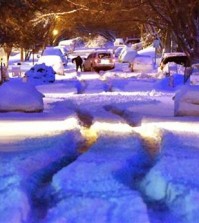
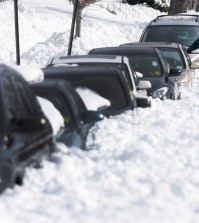
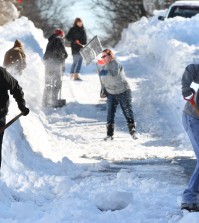
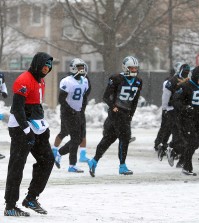





Pingback: Korean Restaurant In Leominster Ma | Order online now, eat soon!
Pingback: Korean Restaurant In Leominster Ma | Chefs Hat
Pingback: Korean Restaurant In Leominster Ma | I'm Hungry - Give me Food
Pingback: Airport Car Service Weymouth | cars - airport limo service